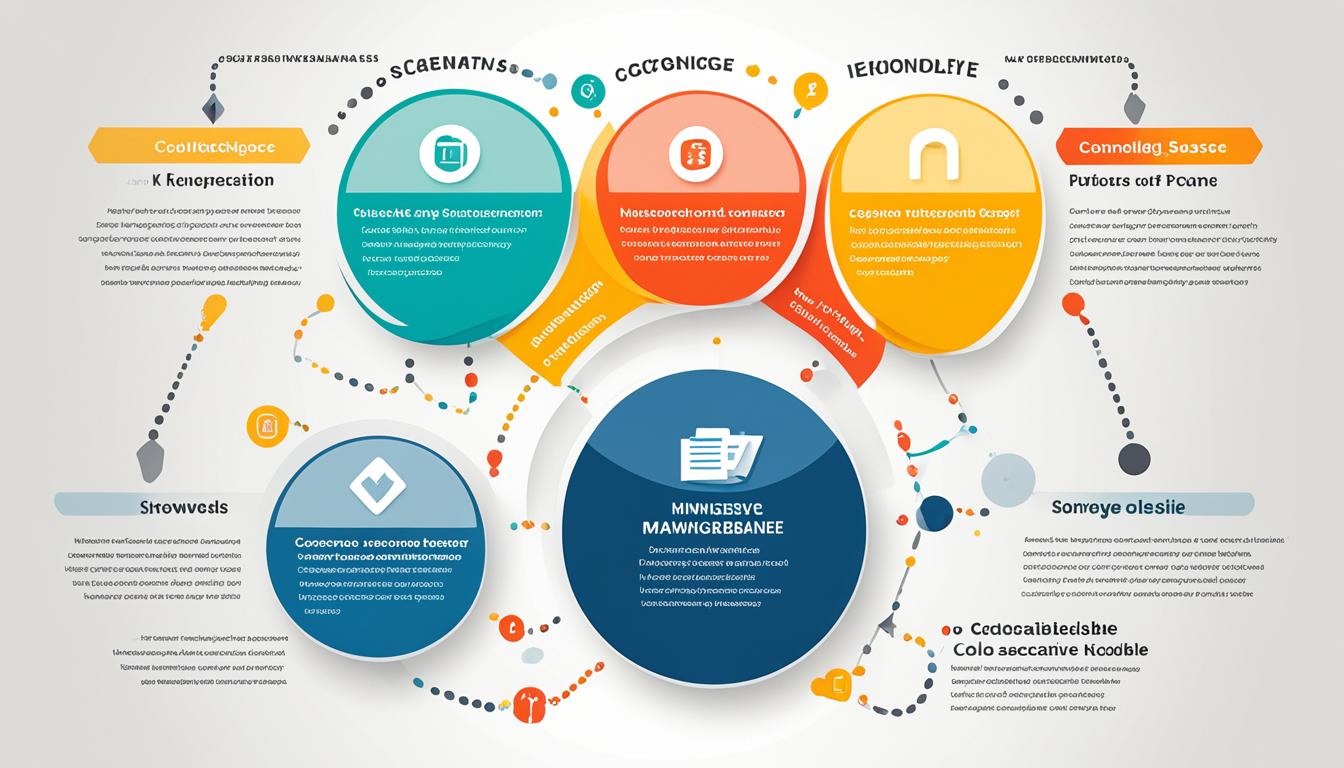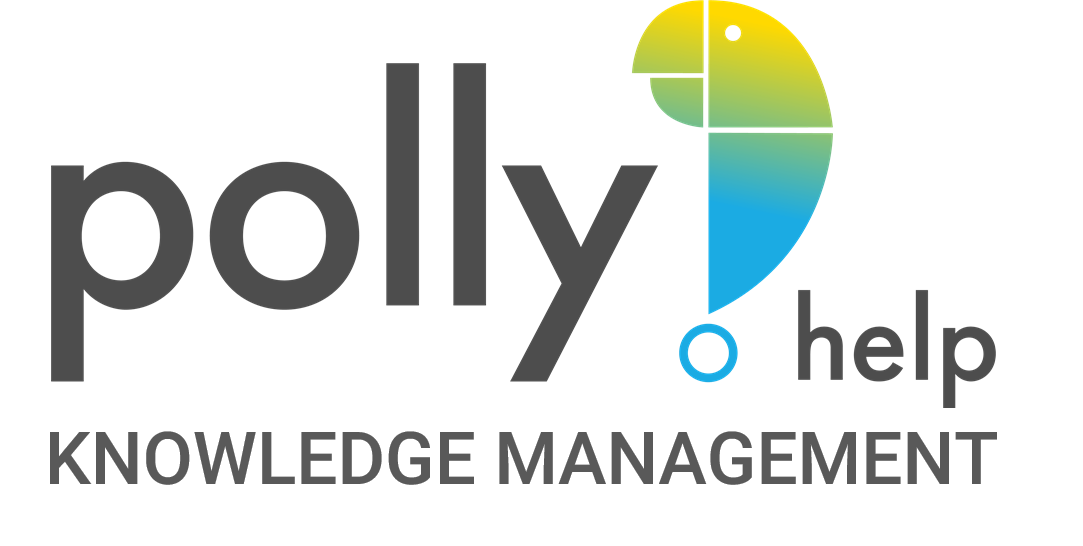The evolution of customer service has taken us into an era where self-service capabilities are not just a convenience but a necessary aspect of business-customer relations. Through the strategic knowledge management integration, companies are cultivating an environment of consumer empowerment, allowing clients to independently find answers and solve issues. The modern customer’s preference for quick and effortless solutions is undeniable, and there’s a shift towards self-service as the first point of contact.
By leveraging robust knowledge bases and dedicated support platforms, businesses facilitate a seamless exchange of information, promoting autonomy and fostering confidence among users. This approach is integral to not only enhancing user experiences but also to reinforcing brand loyalty in a competitive digital landscape.
Key Takeaways
- Customers increasingly favor self-service over traditional customer service methods.
- Knowledge management plays a pivotal role in consumer empowerment and self-service adequacy.
- Streamlined access to resources is crucial for customer independence and satisfaction.
- Segregated knowledge systems help maintain clarity and focus for targeted customer interactions.
- Effective self-service tools are essential for sustainable, customer-centric business growth.
The Rise of Self-Service in Customer Experience
Today’s digital landscape mirrors the evolution of customer preferences, with a pivot towards autonomy and immediacy in customer support. An impressive 90% of customers now presume the provision of an online self-service support portal to be a staple for brands, signaling an irreversible trend in customer experience. In this context, we witness a convergence of customer service trends and technology shaping the future of consumer interaction.
Global Trends and Expectations in Self-Service
A significant majority of consumers, specifically a staggering 79% of Millennials, express a marked inclination for brands that cater to self-service options, solidifying the demand for mobile-responsive service portals. Enhanced by intuitive knowledge management tools, these platforms offer an array of resources—FAQs, how-to guides, chatbots—designed with self-service efficiency in mind.
These advancements do not merely reflect a transient fad but represent a broader movement towards digital self-reliance. As customers lean away from traditional means of obtaining support, the proliferation of digital channels empowers them to resolve inquiries promptly and independently.
Empowering Consumers with Self-Service Solutions
The emphasis on customer empowerment has become a central tenet of modern business strategy. By provisioning customers with robust self-service options, companies foster an environment of engagement and satisfaction. The ease of access to salient information across these platforms serves as a testament to the power of enabling customer-initiated resolution processes.
Crafting a user experience that reinforces empowerment involves simplifying both navigation and the availability of relevant content. This approach not only accommodates the customer’s preference for autonomy but also builds confidence in the brand’s ability to understand and cater to their evolving needs. As such, the effective utilization of self-service platforms is a cornerstone in actualizing customer empowerment and reinforcing the long-term viability of self-service support portals.
Understanding the Knowledge Base: A Foundation for Self-Service
The backbone of any robust self-service framework lies in an effectively structured knowledge base. Essential for customer problem-solving, these repositories are teeming with knowledge base FAQs, comprehensive how-to articles, and a wealth of other resources tailored for user empowerment. A quality knowledge base not only offers rapid solutions to common queries but also fosters an environment where customers can independently navigate through challenges, enhancing their experience with the brand.
Through a user-friendly interface, customers are invited to search for immediate answers. By simply inputting relevant keywords or phrases, they are swiftly directed to informative content or interactive guides that address their specific needs. By streamlining access to this form of support, companies encourage self-reliance and ensure that their clientele finds the information they need without unnecessary wait times or hurdles.
- FAQs: Quickly retrieve answers to common questions.
- How-to Guides: Follow step-by-step tutorials for independent resolution.
- Community Support: Engage with forums for peer-assisted advice.
The value of a knowledge base extends beyond immediate customer assistance; it also serves as a constant learning tool, where individuals can expand their understanding of products and services at their own pace. In essence, a well-maintained knowledge base is not just a tool for reactive support, but a proactive educator, customer satisfaction enhancer, and a steadfast pillar upon which a self-service culture can securely stand.
Knowledge Management Self Service: Bridging the Customer Empowerment Gap
Streamlining the customer journey through advanced knowledge management self-service has become an essential strategy in today’s customer-centric business environment. By providing efficient and intuitive self-service options, companies can empower consumers to find solutions independently, ensuring a seamless experience that strengthens brand loyalty and customer satisfaction.
Interactive tools such as chatbots and IVR workflows are pivotal in facilitating an efficient customer journey. These self-service technologies have revolutionized how customers interact with brands, providing immediate responses to queries and enabling a smoother path to resolution. Below, we delve into how these integrations optimize the customer journey.
Integrating Knowledge Management with Self-Service Tools
Chatbots have emerged as invaluable assets in knowledge management systems, guiding users through intricate product details or service procedures. Alongside chatbots, IVR workflows simplify telephone interactions, steering customers towards quick solutions without the need for a live agent. The synthesis of these tools within self-service technologies signifies a substantial leap toward autonomous customer service.
- Localize common queries rapidly using chatbots equipped with machine learning.
- Reduce wait times and avoid unnecessary call transfers with well-designed IVR workflows.
- Enable round-the-clock support without straining human resources.
- Keep interactive systems updated with the latest information to maintain high service quality.
Integrating these automated self-help solutions realizes the critical link between cutting-edge technology and user empowerment. With each interaction, data collected contributes to the improvement of overall system responsiveness and precision, ensuring that customers consistently receive the most relevant and helpful information.
Streamlining the Customer Journey through Knowledge Management
Effective knowledge management is not only about providing information but also about optimizing the accessibility and user-friendliness of that information. Businesses can drastically enhance the customer journey by adopting straightforward knowledge management systems that foreground clarity and ease of use.
| Feature | Customer Benefit | Business Impact |
|---|---|---|
| Clear Call to Action | Minimizes confusion and orients users toward goal completion. | Improves conversion rates and fosters customer satisfaction. |
| Easy Access to Resources | Enables quick resolution and reduces frustration. | Increases the usage of self-service options and reduces support costs. |
| User-Friendly Interface | Enhances navigation leading to a positive user experience. | Encourages repeat engagement and loyalty to the brand. |
| Immediate Obvious Purpose | Assures users they are in the right place, building trust. | Promotes a consistent, brand-aligned customer journey. |
These systems are designed with the end-user in mind, consolidating a company’s reputation as being attentive and innovative with regards to customer service needs. By prioritizing simplicity and efficiency, businesses solidify the bridge between technology and human-centric service.
Key Benefits of Enhanced Self-Service Options
In today’s competitive market, businesses continually seek ways to improve customer satisfaction, cut on expenditures, and streamline processes. Embracing enhanced self-service options has proven to be an impactful strategy, achieving not only reduced support costs but also fostering efficient problem resolution.
Customer self-service capabilities have been decisively linked with elevated levels of customer contentment. By empowering customers with the ability to troubleshoot and resolve their issues independently, they gain a sense of achievement and appreciation for the brand that provided this autonomy. This positive experience often translates into better company evaluations under key performance indicators (KPIs) such as Customer Satisfaction Scores (CSAT).
Another salient benefit lies in the reduced support costs associated with enhanced self-service systems. With customers independently resolving a significant portion of their inquiries, there’s a direct decrease in the volume of calls and interactions needing live agent support. This shift doesn’t just save on operational costs; it also allows customer service representatives to focus on more complex, higher-value interactions that require human empathy and expertise.
The ability to conduct efficient problem resolution is an intrinsic advantage of a well-integrated self-service system. When customers find answers to their questions without delay, there is a direct impact on metrics like First Contact Resolution (FCR) and Net Promoter Scores (NPS), indicators of effective and prompt service.
- Enhanced customer control and satisfaction
- Substantial reduction in live support costs
- Improved resolution rates and customer loyalty
To underscore these benefits, consider the case of a widely acclaimed customer service platform. After implementing user-friendly self-service tools, they observed a marked improvement in CSAT levels while simultaneously witnessing a significant decrease in inbound customer support tickets. The transition to a self-reliant customer base marks a monumental shift in the efficiency of problem-solving and operational costs.
The contemporary customer values instantaneous access to information and the convenience of solving problems at their own pace. As businesses continue to optimize their self-service options, they not only meet customer expectations but secure a profitable and sustainable position in the marketplace by enhancing customer satisfaction, ensuring efficient problem resolution, and committing to reduced support costs.
Implementing Knowledge Management Systems for Self-Service Efficiency
As businesses continue to streamline their customer service operations, the importance of efficient knowledge management systems has never been more pronounced. These systems serve as the backbone for enabling customers to complete tasks such as payments and registration independently, thereby increasing brand awareness and operational efficiency.
Designing User-Friendly Self-Pay Portals
To foster a positive user experience and enhance self-service registration, the creation of self-pay portals with a user-friendly design is essential. These portals empower customers to manage their accounts, make payments, and review their transaction history with ease, without the intervention of customer service teams. A key component of knowledge management implementation, these portals allow for better resource allocation and improve customer satisfaction.
Creating Dedicated Campaign Knowledge Management Systems
Campaign knowledge management systems are customized to maintain brand awareness while providing a clutter-free environment for campaign-related activities. Organizations can harness these systems to facilitate information dissemination about new initiatives, fostering an environment where customers can effortlessly find campaign details and complete self-service registration, thus leading to increased engagement and participation.
- Self-pay portals: Simplify payment and account management
- User-friendly design: Ensure intuitive navigation and ease of use
- Knowledge management implementation: Develop efficient knowledge structures
- Campaign knowledge management: Organize campaign-specific information
- Brand awareness: Enhance recognition through strategic information placement
Evaluating the Impact of Knowledge Management on Customer Support
The implementation of knowledge management systems has become a pivot in the enhancement of customer support structures. With a well-organized knowledge base, companies can offer enhanced customer support, enabling service agents to handle complex customer requirements efficiently while reducing the overall agent workload.
Strategic application of these systems permits customers to navigate a breadth of information systems with ease, thus playing a crucial role in improving knowledge base efficiency. Customers can now swiftly find resolutions for standard inquiries that would typically consume valuable service agent time. This self-sufficiency not only caters to the immediate needs of customers but fosters a culture of empowerment within the customer base.
The effect of knowledge management on customer support can be clearly seen in the noticeable reduction in agent workload. Service agents can move away from addressing routine concerns to focusing on resolving more intricate issues that require human attention and expertise. This shift is conducive to both customer satisfaction and operational productivity.
- Immediate access to information.
- Decrease in redundant communication.
- Greater customer satisfaction through enhanced support options.
- Optimized productivity for customer support agents.
- Well-managed and easily accessible knowledge bases.
As customers continue to seek autonomy in their problem-solving endeavors, the continued evolution of knowledge management systems remains critical. Not only do these systems underpin customer support initiatives, but they also signify a company’s commitment to addressing the dynamic needs of its consumer base through adaptable and forward-thinking solutions.
Customer Empowerment through Self-Service Knowledge Bases
In an age where autonomy and instantaneous solutions are prized, self-service knowledge bases stand as pillars for self-help empowerment. These platforms not only facilitate independent problem-solving but also embody the collaborative spirit of collaborative customer forums, enabling a richer and more informed user experience.
Enabling Independent Problem-Solving
At the core of customer empowerment lies the ability to independently navigate challenges. In this digital era, individuals lean towards self-service resources that offer immediate and efficient troubleshooting methods. The power of autonomy is magnificently realized through comprehensive FAQs, intuitive how-to guides, and the shared wisdom found within customer forums. These resources encourage users to explore and implement solutions at their own pace, fostering confidence and satisfaction in the handling of their issues.
Quality Assurance and Feedback Mechanisms in Self-Service
Crucial to maintaining the integrity and utility of self-service platforms is a robust self-service quality assurance system. Through direct customer feedback, companies can tap into invaluable insights leading to continual improvement of the knowledge bases. Users can rate and review content, enabling a quality control loop that aligns with the dynamic needs of the user base. This fosters an environment where information flow control is greatly enhanced, making every interaction with the knowledge base a potentially enlightening experience for both the business and the consumer.
| Feature | Benefit | Impact on Customer Experience |
|---|---|---|
| Community Forums | Pooled User Knowledge | Faster, peer-supported problem resolution |
| Content Ratings | Feedback Incentives | Improved content quality and relevance |
| FAQs and Guides | Immediate Information Access | Reduced reliance on customer support |
Making Information Accessible: Knowledge Management Best Practices
To maximize knowledge base accessibility, certain best practices must be adhered to. Content optimization is not just about the quality of the information, but also how easily and quickly users can access it. Ensuring information delivery efficiency requires a multifaceted approach, combining technology, strategy, and continuous improvement.
One of the key practices is the implementation of AI-driven search engines within the knowledge base. These not only understand the intent behind the user queries but also provide the most relevant and updated content promptly. This smart search capability has become a non-negotiable feature for a competitive knowledge management system.
- Regular content audits to ensure accuracy and relevancy
- Clear categorization for easy navigation
- Responsive design for cross-device compatibility
- User feedback mechanisms to gather insights for improvement
Encouraging community engagement where customers help each other with troubleshooting issues leads to a more vibrant and self-sustaining support ecosystem. These interactions not only relieve the pressure on customer support agents but also foster a sense of community amongst users. Harnessing customer feedback and incorporating suggestions directly into the knowledge base and product development is vital for keeping the knowledge base dynamic and user-centric.
| Feature | Benefit | Practice |
|---|---|---|
| AI-Enhanced Search Engine | Reduces time to find relevant solutions | Implement machine learning algorithms for smarter search capabilities |
| User Feedback Collection | Improves content relevancy and effectiveness | Integrate rating systems and feedback forms |
| Community Forums | Distributes support load and improves engagement | Encourage peer-to-peer interactions and support |
| Content Categorization | Enhances the ease of navigation | Organize information into intuitive categories |
The efficiency of information delivery also depends on keeping the knowledge base simple yet comprehensive. It should strike the perfect balance between having in-depth information and being able to offer a quick resolution for common problems. Through content optimization and structuring, organizations can ensure that their knowledge base serves as a rapid first line of support, reducing the need for customers to escalate issues.
Ultimately, the goal of these best practices is to grant users quick and easy access to the information they need, empowering them to self-serve and solve their own problems. When users find answers without effort, their trust in the brand is boosted, satisfaction scores improve, and the business reaps the benefits of a well-crafted knowledge management strategy.
Reducing Operational Costs with Effective Knowledge Management
Implementing effective knowledge management systems within customer service operations has proven to be a critical strategy in streamlining support channels and achieving significant cost savings. Self-service channels, in particular, have introduced a wave of financial benefits to organizations by equipping customers with the tools needed to resolve inquiries independently.
Assessing the Financial Benefits of Self-Service Channels
Cost reduction is one of the paramount benefits achieved through self-service channels. By seamlessly redirecting routine customer inquiries to user-friendly knowledge bases, companies can substantially decrease their reliance on phone-based support. As a result, not only are the often prohibitive costs associated with live customer service interactions reduced, but the allocation of resources can be optimized to focus on more value-adding activities.
Furthermore, self-service platforms directly contribute to customer call deflection, enabling consumers to find answers to their questions without the need for direct engagement with service agents. This not only enhances customer self-reliance but simultaneously diminishes the cost per contact—a win-win for both customers and the companies that serve them.
Boosting Agent Productivity and Customer Self-Reliance
Knowledge management efficiency is synergistic with agent productivity. When routine and basic inquiries are managed through self-service channels, agents are afforded the time to address more complex and nuanced customer needs. This efficient distribution of workload not only bolsters agent satisfaction but also elevates the level of service they can provide.
Empowering customers through self-reliance fosters a more robust relationship between consumers and brands. As customers become more adept at utilizing self-service resources to problem-solve, they experience a greater sense of satisfaction and autonomy. This empowerment is a cornerstone of modern customer service strategies and reflects a deep understanding of contemporary consumer behavior.
| Customer Support Channel | Average Cost per Minute | Cost Reduction Potential |
|---|---|---|
| Phone Support | $1.15 – $0.75 | High |
| Self-Service Knowledge Base | $0.10 – $0.05 | Very High |
| Live Agent Chat Support | $0.50 – $0.30 | Medium |
| Email Support | $0.25 – $0.15 | Medium |
Conclusion
As we stand at the juncture of a customer-centric revolution, the significance of knowledge management self-service stands paramount in composing a customer journey that epitomizes efficiency and satisfaction. It presents a win-win scenario where customers experience the autonomy of self-help paired with the ease of accessing comprehensive information, while organizations benefit from heightened efficiency and reduced operational costs. The embodiment of streamlined customer experiences is vividly noted in the way interactions have evolved; information is not only a mere expectation but a requisite in the rapidly accelerating digital world.
Robust self-service frameworks driven by knowledge management serve as the backbone for providing expedient solutions and fostering the sense of empowerment that today’s consumers relentlessly seek. The transition toward self-service is not just a trend but an imperative shift as businesses strive to stay aligned with the evolving expectations of their users. Implementing intuitive, user-friendly knowledge bases enables customers to swiftly navigate through queries and solutions, fortifying the very essence of customer-centric support.
Through the diligent deployment of effective knowledge management systems, organizations emphasize their commitment to not only addressing current customer preferences but also setting the stage for future innovation in service delivery. As we embrace this evolving landscape, one thing remains incontrovertible: knowledge management self-service is inexorably linked with the satisfaction and loyalty that brands seek to engender in their patrons, thereby sculpting a legacy that resonates with efficiency, autonomy, and unwavering customer devotion.
FAQ
What are the benefits of integrating knowledge management systems with self-service capabilities?
Integrating knowledge management with self-service capabilities empowers consumers, providing them with prompt and efficient access to information and problem-solving tools without the need for agent involvement. It streamlines the customer experience and can lead to improved customer satisfaction and significant reductions in support costs.
How are global trends reflecting the rise of self-service in customer experience?
Global trends show a strong demand for online, mobile-responsive self-service portals, with a majority of customers, particularly millennials, expecting brands to offer such options. This preference is indicative of a shift towards digital self-reliance in customer support.
What is the role of a knowledge base in self-service?
A knowledge base serves as the foundation for self-service by acting as an online library that stores FAQs, how-to articles, and customer problem-solving resources. It’s designed to let users quickly find the solutions they need, fostering a culture of self-service.
How do knowledge management systems streamline the customer journey?
These systems streamline the customer journey by providing clear calls to action, easy access to important hyperlinks or buttons, and offering customer journey optimization through self-service technology integration like chatbots and IVR workflows. They ensure that consumer interactions with the company are straightforward and efficient.
What is the significance of self-pay portals in knowledge management systems?
Self-pay portals are significant in knowledge management systems as they allow customers to manage their payments or check balances independently without direct interaction with customer service representatives, thus enhancing user experience and efficiency through user-friendly design.
How do knowledge management systems contribute to more efficient problem resolution?
These systems allow customers to resolve their issues autonomously by providing them access to extensive knowledge bases, self-service tools, and dedicated support options which contributes to efficient problem resolution and eases the agent workload.
What role do community forums play in knowledge management systems?
Community forums within knowledge management systems enable independent problem-solving and collaborative customer support. Users can exchange insights, advice, and solutions for specific use cases, fostering a community-based self-help system.
How can companies ensure their knowledge bases remain effective and relevant?
Companies can ensure their knowledge bases are effective by employing best practices such as keeping content up-to-date, integrating powerful AI-driven search engines, encouraging customer-to-customer interactions, and collecting customer feedback to maintain and improve the quality of information.
What are the financial benefits of implementing self-service channels within knowledge management?
Implementing self-service channels can lead to considerable financial benefits by reducing the operational costs associated with customer support, such as phone call expenses. It also allows for customer call deflection to self-service options, thereby maximizing agent efficiency and lowering support costs.
How does customer self-reliance improve agent productivity?
Customer self-reliance, facilitated by effective knowledge management in self-service channels, reduces the necessity of agent-assisted interactions. This allows agents to concentrate on resolving more complex issues, thus boosting their productivity and efficiency.





